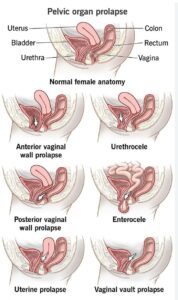Pregnancy Gym & Post-Natal Fitness
Classes
Physical activity is an important tool during pregnancy to stay mobile and prevent pregnancy pain such pelvic girdle pain, low back pain, ect. But also after you give birth to recover and get back in shape! However, to practice safely, you need to be aware how your body changed throughout the pregnancy and how delivery affected it.
Based on the expertise of our Women’s Health Physiotherapists and Osteopath, at My French Physio, we developed specific exercise programs for both Pregnancy and Post-Natal period.
These two programs, Pregnancy Gym and Post-Natal Fitness, are open to any level (beginner to advance), and would be adapted to your specific needs.
An initial assessment, with one of our women’s health physio, would be necessary before to start your gym classes, to determine if there is any contra-indication and your specific needs.
Our aim is for you to have the best Pregnancy possible as well as the best recovery possible to enjoy the most of your baby and new life as a mum!
Pregnancy Gym Class:
How to stay active during your pregnancy and prepare your body to give birth?
Length of the Pregnancy Class:
- 25-30 minutes of cardiovascular training on a yoga ball
- 20 minutes of gentle strengthening
- 15 minutes of pelvic floor exercises, stretching and pregnancy advices
2 sessions a month
When to Start?
For Beginner (didn’t practice sport before):
– Don’t start during the first trimester
– Wait the second trimester to start
For others (you were already practising a physical activity before your pregnancy):
– You can continue your physical activity
– You can start new physical activity adapted to pregnancy like our Pregnancy Class
Why Sport is essential during Pregnancy?
Sport allow you to stay active throughout your pregnancy and help your body to adapt better to the hormonal and postural changes, preventing disease and pain.
Too often, we receive pregnant patients in a lot of pain who can barely walk. Regular exercises is one of the best way to prevent it and diminish the level of fatigue.
Practising with other mum is also a great way to stay motivated together! And our women’s health physio would be able to answer your questions about pregnancy.
General advices before to start
- Listen to your body! Stop if you feel tired: we are not aiming for performance during pregnancy but for well being!
- Bring a bottle of water with you! Reminder to stay hydrated before/during/after sport, you drink for 2!
- Use new sport shoes and wear a sport bra to avoid breast pain.
When Sport can be dangerous?
Sport is strictly forbidden in case of:
- Cardiovascular disease
- Dilated cervix
- Multiple pregnancy (3 or more)
- Recurrent miscarriage in the first 3 months of pregnancy
- Pre-eclampsia
- Placenta previa
Starting practising a physical activity will require a medical check-up before hand for women suffering from:
- Anaemia
- Diabetes
- Obese
- Sedentary (never practised any sport before prengnancy)
- Anorexia
- Epilepsia
- Pulmonary, cardiac or thyroid problem
Pregnancy Gym Classes
2nd and 4th wednesday of the month-
At 6:00 PM
-
Kentish Town practice
Post Natal Fitness Classes
2nd and 4th wednesday of the month-
At 5:00 PM
-
Kentish Town practice
Post-Natal Fitness Class:
Get Back to Sport and In Shape
protecting your Pelvic Floor & Abdominal Muscles!
Class Content
The Post Natal Fitness class last 1 hour:
- 20 minutes of gentle muscular work using hypopressive / respiratory / Pelvic Floor exercises
- 20 minutes of cardiovascular training without impact or low impact
- 10 minutes of gentle strengthening
- 10 minutes of stretching and advices to recover after giving birth
2 sessions a month
When to Start?
Never start any impact sport before 6 weeks Post-Natal (after giving birth)
Indeed, following the trauma of giving birth, your ligaments and muscles are too weak to fulfil their functions (mainly maintain your organs in place) and you may suffer from incontinence, heaviness and more serious issues if you go running too soon after you gave birth for example.
Before to go back to impact sport, we strongly recommend to have a check-up of your Abdominal and Pelvic Floor muscles by a Women’s Health Physio or a Midwife.
Don’t hesitate to ask advice to your physio before or after the Post-Natal Fitness class.
For more information about how to get back to sport after giving birth, you can read our article on the topic:
https://myfrenchphysio.london/womenhealth-obstetric/obstetric-post-natal-pelvic-floor/sport-after-giving-birth/
Why to get back to Sport after giving birth?
Specific Post-Natal exercises program as provided by our women’s health physio have been proven to:
- Reduce the risk of post-partum depression
- Get back in shape by returning to your weight before pregnancy
- Strengthening of your core muscles
- Improvement of your posture and continence
- Improvement of sleep (always useful with a new born!)
General advices before to start
- Start progressively
- Let us know directly if you develop any of the symptoms mentioned below
- Change your sport shoes (your feet changed too during the pregnancy!)
- If you breastfeed, it is advised to express your milk before the gym class to prevent accumulation of lactic acide
- Relax: it is a moment for YOU to enjoy, reconnect with your body and feel good!
When Sport can be dangerous?
Going back to sport require a Pelvic Floor and Abdominal check up in case of C-section, episiotomy or urinary incontinence. This check-up can be perform by one of our women’s health physio or midwife.
Resuming sport activities should be delay in case of:
- Heaviness in the abdominal area
- Urinary or anal incontinence
- Difficulty to control vaginal or anal gas
In the above cases it is also essential to have a Pelvic Floor and Abdominal check up by a specialised medical professional.
In our practice, all these elements are looked for during an initial one to one appointment with one of our women’s health physio or midwife before to start Post-Natal Fitness classes.



